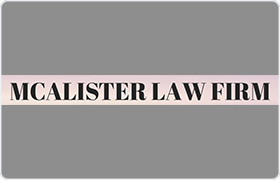Nicholson Juvenile Law Lawyer, Mississippi
Sponsored Law Firm
-
 x
x

Click For More Info:
-
McAlister Law Firm, LLC
419 Security Square Gulfport, MS 39507» view mapCriminal Defense Law Your Gulf Coast Attorney
An Attorney with Nineteen years of court room experience. Licensed in the States of Mississippi and Alabama.
228-265-5190
Not enough matches for Nicholson Juvenile Law lawyer.
Below are all Nicholson Criminal lawyers.
Rob Curtis
✓ VERIFIEDCriminal, Divorce & Family Law, Accident & Injury, Estate, Bankruptcy & Debt
Rob Curtis is a practicing lawyer serving Gulfport, MS and the surrounding area.
Carolyn Ann McAlister
✓ VERIFIEDDivorce & Family Law, Criminal, Estate
Carolyn McAlister is a practicing attorney in the state of Mississippi. She received her J.D. from University of Mississippi. She has been practicing... (more)
Walter W. Dukes
Complex Litigation, Criminal, Defamation & Slander, Mesothelioma
Status: In Good Standing Licensed: 46 Years
 Carolyn McAlister Gulfport, MS
Carolyn McAlister Gulfport, MS


